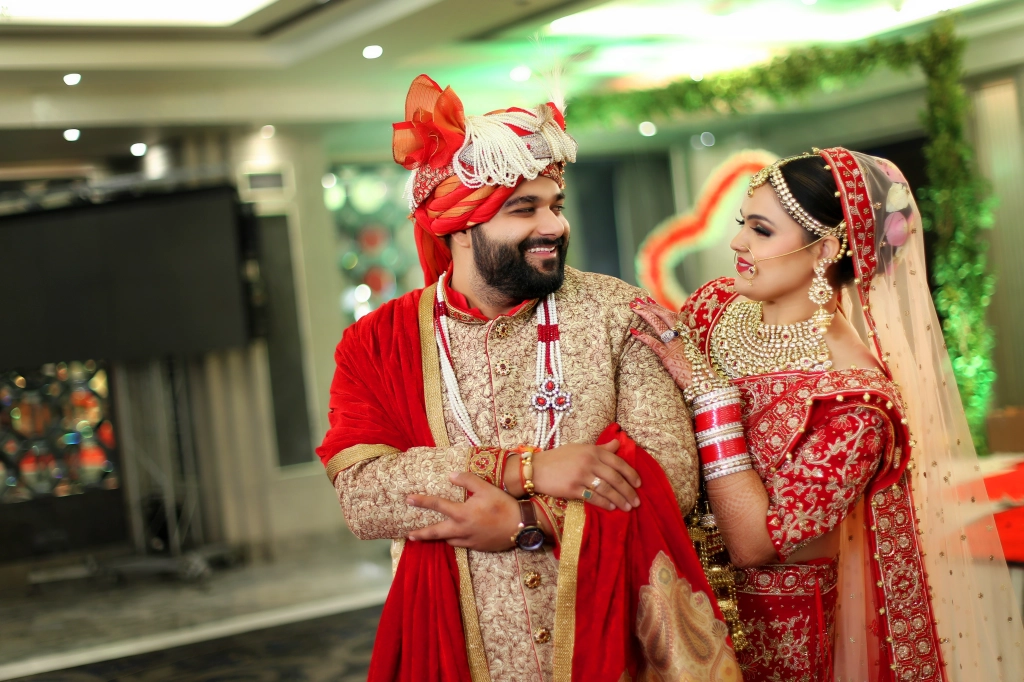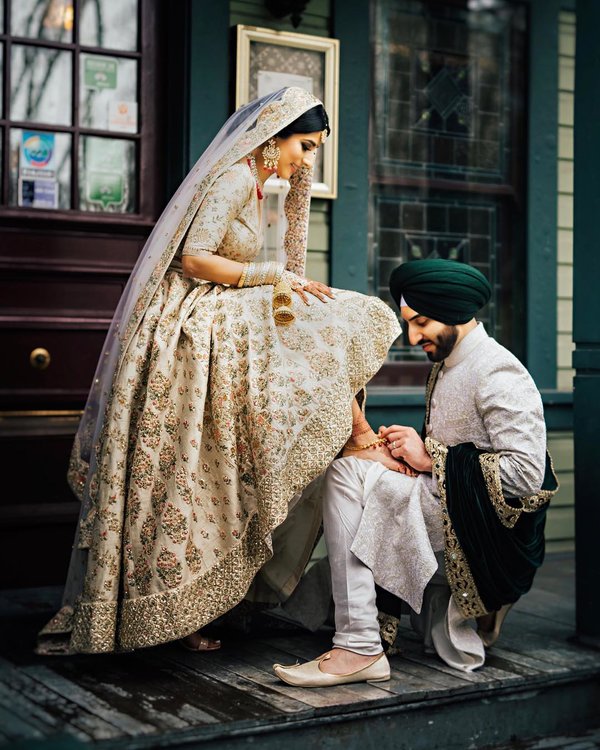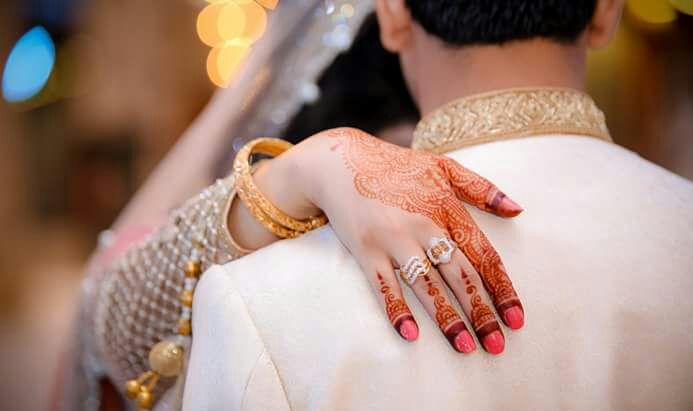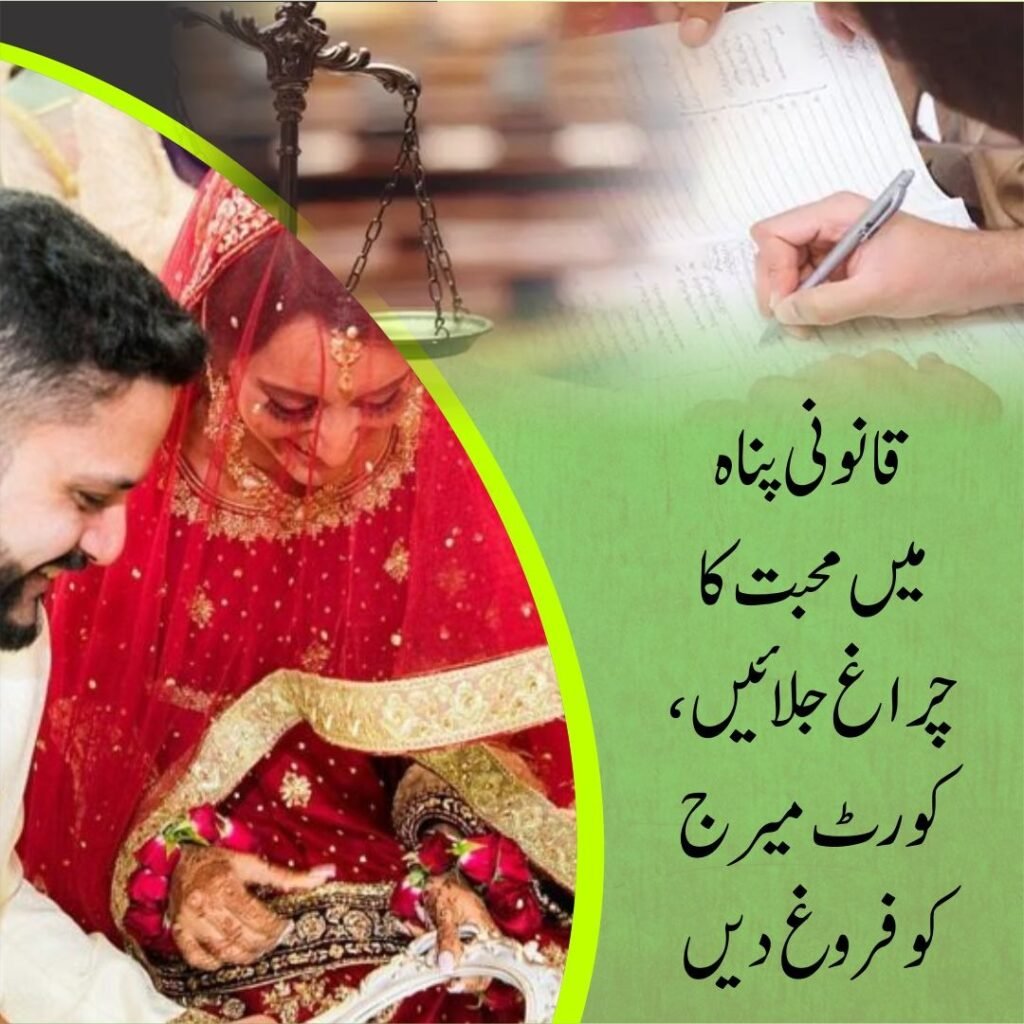Court Marriage Fee, Nikah/Marriage Cost in Karachi, Pakistan
Court Marriage Fee/Cost in Karachi, Pakistan
Court Marriage Fee in Pakistan Can Vary in Different Cities

Court marriage fee in Pakistan can vary depending on the city/town basis. Court marriage fees in Pakistan can also be different depending on the seniority and fame of the family lawyer. The cost of a court marriage typically includes administrative and legal service fees. However, the fee for court marriage in Pakistan is generally affordable compared to traditional weddings.
Court Marriage Fees and Costs in Karachi, Pakistan: What You Need to Know?
Court marriage fees/costs in Karachi, Pakistan can also vary as per the circumstances of the case. The court marriage fee/cost can be Rs. 25,000 to Rs. 35,000 in Karachi, Pakistan. Some non-lawyers show them lawyers and charge fewer fees as Rs.8,000 but their legal work is not authentic, and they usually prepare fake Nikah Nama registrations with false stamps of the Nikah Registrar.
Understanding Court Marriage: Legal Recognition and Rights in Pakistan
A court marriage is an official and legally recognized union of a couple as a partner in life. Once the court marriage has been solemnized, the couple acquires a lawful status and all the rights and obligations that come with it.
Documents Required for Court Marriage Registration in Pakistan
A court marriage requires certain documents to be presented at the time of registration as per local government rules and regulations. These include a complete Marriage Registration Form, Original CNICs of both bride & groom Divorce/Death Certificate of an ex-spouse (if applicable), and two witnesses with their original CNICs, who have to be Muslim.

What is Court Marriage? 20 Important Points of Information
- A court marriage is a legal marriage in which the couple has to get married in a court.
- The couple must have had a legal marriage certificate.
- They need witnesses of the Nikah ceremony for the court marriage.
- The witnesses have to sign on Nikah Nama to verify that they were present at the ceremony. If you do not have any witnesses, you can ask us to arrange.
- The process of court marriage is straightforward, with minimal additional costs involved.
- Our law firm provides court marriage packages that include Nikah Khawan fees and registration fees.
- There is no government fee for a court marriage, but you have to pay a Nikah registration fee and MRC fee.
- Couples may also be charged for the services of witnesses if needed.
- The total cost for a Nikah ceremony and court marriage in Pakistan is usually affordable.
Couples may inquire about the exact costs for court marriage at their local family court. - The Nikah fee can be paid directly to the Nikah Khawan during the ceremony.
- The court marriage fee is generally lower than the cost of a traditional wedding.
- The fee for court marriage typically does not include the cost of pre-marriage counseling or consultations.
- Couples may choose to pay for extra services like legal advice or document translation if required.
- The overall cost of court marriage is relatively low compared to wedding banquets or events.
- In some cases, the court marriage fee is determined by the specific judge or Nikah Khawan officiating.
- The fees for court marriage and Nikah can vary slightly depending on the region.
Couples should confirm the exact costs with the court or legal consultant before proceeding. - The court marriage fee usually covers all administrative and processing expenses.
- The total cost for court marriage services typically ranges between PKR 25,000 to PKR 35000.
- Extra charges may apply if there are complications in documentation or legal processing.
- Couples should ensure that they are clear about all associated costs before proceeding with court marriage.

Court Marriage Fee & Cost and Court Marriage Rules in Pakistan
Court Marriage Fee & Cost and Court Marriage Rules in Pakistan
In Pakistan, marriage is both a civil and religious contract, and couples intending to marry must navigate certain legal requirements. Engaging family or matrimonial lawyers is often the first step, as they guide couples through the formalities.
Court Marriage Fee in Pakistan
The cost of obtaining a court marriage, which includes the preparation of the Nikah Nama and NADRA marriage certificate, varies across regions. While the fee may be as low as a few thousand rupees in some areas, in most cases, it typically ranges between PKR 25,000 to PKR 35,000. This fee covers the services of the lawyer and Nikah Khawan, as well as the legal and procedural work involved. Payment can be made in cash or via bank transfer. Additional expenses, such as official filing and marriage registration fees, may also apply.
What are the Court Marriage Rules in Pakistan?
Rules for Court Marriage in Pakistan
Court marriage regulations can differ between provinces, influenced by local laws and customs. It is essential to consult our qualified lawyer to understand the specific requirements in your jurisdiction before proceeding. This ensures compliance with all legal formalities and helps avoid complications.
By adhering to the rules and obtaining expert guidance, couples can formalize their union smoothly and legally through court marriage in Pakistan.
Who Can Marry Through a Court Marriage in Pakistan?
Everyone can do a court marriage as it is an official form of marriage in Pakistan. To get married through a court marriage process, you do not require to file any marriage application with the court.
The following are some of the restrictions that apply to court marriages:
-You must be 18 or older.
-You must be legally able to marry.
-You must be unmarried at the time of your court marriage; however, polygamy is allowed with some restrictions.
-Both parties must be present at the court marriage ceremony.
Are You Thinking About Court Marriage?
Understanding Court Marriage Fees and Rules in Pakistan
When planning a court marriage in Pakistan, it’s essential to understand both the financial and legal aspects involved. The fees and regulations associated with court marriages can vary depending on your location and specific circumstances. This variability makes it crucial for couples to educate themselves about the process to avoid unnecessary expenses and ensure their marriage is legally recognized.
Court Marriage Fees in Pakistan
The cost of court marriage in Pakistan can fluctuate based on factors such as the region and the complexity of the case. On average, couples should budget for a range between PKR 25,000 to PKR 35,000. This fee typically covers the legal services of an experienced lawyer, the services of a qualified Nikah Khawan, and the preparation of essential documents, including the Nikah Nama and NADRA marriage certificate. In some cases, additional costs may arise, such as official registration fees or document translation and attestation for international requirements.
Court Marriage Rules in Pakistan
Pakistan’s court marriage process is governed by both civil and Islamic laws, making it vital for couples to adhere to these rules. The legal requirements often include presenting original CNICs, witnesses, and, if applicable, documentation such as a divorce or death certificate of a previous spouse. These requirements may differ slightly between provinces, reflecting local legal frameworks and administrative practices.
Why Understanding the Process is Crucial
A lack of knowledge about court marriage procedures can lead to unnecessary stress, delays, or even invalidation of the marriage contract. Engaging a reputable lawyer can help streamline the process, ensuring all legal formalities are fulfilled efficiently. Lawyers not only assist with documentation but also provide guidance on the nuances of court marriage laws in different jurisdictions across Pakistan.
Key Takeaways
We hope this guide has given you a clearer picture of what to expect when pursuing a court marriage in Pakistan. By understanding the fees and rules involved, you can better prepare for the process and make informed decisions. Whether you are a Pakistani citizen or marrying someone from another country, staying informed about the legal framework will save you time, money, and unnecessary complications.
If you’re considering a court marriage in Pakistan, be sure to consult our qualified family lawyer to ensure your union is both valid and legally recognized.

Court Marriage in Pakistan is an Officially and Legally Recognized Union of a Couple
Court Marriage in Pakistan: A Legal and Recognized Path to Matrimony
Court marriage in Pakistan is a formal, legally binding union that grants a couple official recognition as life partners. This process allows individuals to enter into marriage through a civil and legal framework, ensuring their relationship is protected under the country’s laws.
Legal Rights and Documentation Acquired Through Court Marriage in Pakistan
Once a court marriage has been solemnized, the couple acquires a lawful status that grants them the rights and responsibilities associated with marriage. These rights include mutual financial support, inheritance claims, and recognition of their union by the state and society. Moreover, their marriage is registered in official records, providing them with the necessary documentation such as the Nikah Nama and, subsequently, the NADRA-issued marriage certificate.
Court Marriage is a Secure and Independent Path to Matrimonial Union in Pakistan
Court marriage is particularly significant in cases where couples wish to marry without familial or societal interference. It ensures a safe and impartial process for those who wish to formalize their relationship while adhering to the legal and religious requirements in Pakistan. The process also underscores the importance of consent, as mutual agreement between both parties is a fundamental requirement for the marriage to be valid.
Court Marriage: A Legally Protected Path to Matrimonial Union in Pakistan
By choosing court marriage, couples can rest assured that their union is legally recognized, enabling them to navigate life together with the rights and protections afforded by Pakistani law. This makes court marriage not just a personal commitment but also a legally safeguarded institution.
What are the Requirements for Court Marriage in Pakistan?
You will need to register your marriage with the National Database and Registration Authority (NADRA), and the following documents are required:
Original CNIC of both bride and groom.
Original CNICs of witnesses along with their address proof.
Nikah Nama signed by all parties, including two witnesses on the dotted lines at the end of the document.
Original CNICs of the Bride, Groom, Wali and Nikah Khawan
Original CNICs of the Bride, Groom and Wali are required to get a court marriage done. These should be original documents, not photocopies. The Nikah Khawan will not accept them otherwise. You can obtain a copy of your CNIC in the NADRA office without any hassle or extra charges. If you do not have a CNIC card, then apply for one with NADRA and get it there itself, else they will take around 3-4 business days to issue one new card to you upon submission of required documents and payment at their counter/office.
Two witnesses with their original CNICs, who have to be Muslim.
- Must be Muslim
- Must be of sound mind and body
- Must have original CNICs of the witnesses.
- Should be present at the time of the marriage ceremony.
Divorce/Khula Certificate (if applicable)
When you apply for court marriage, you will also be asked to provide a divorce/khula certificate if you are divorced or your spouse is dead. If you are getting married after having been married before, then you must provide proof of the divorce or death. For example:
You got divorced in 2014 and remarried in 2015 with a new spouse, who is still alive today. You need to submit all legal documents that prove your first marriage was legitimate so it can be proved legally nullified (and thus not considered valid anymore). These documents include:
- Marriage certificate from your first wedding
- Divorce certificate from your previous marriage

Why Choose Us for Your Court Marriage?
What Our Court Marriage Lawyers Can Help You?
When it comes to court marriage in Pakistan, the process can often seem daunting due to the intricate legalities and cultural sensitivities involved. That’s where we step in. Choosing us for your court marriage ensures a seamless, professional, and legally sound experience. With our team of expert lawyers and a deep understanding of family laws in Pakistan, we provide the guidance and support needed to navigate this significant life event with ease.
1. Expert Legal Assistance for Court Marriage
Our court marriage lawyers have years of experience dealing with matrimonial laws. We ensure that every step of your union complies with Pakistan’s legal requirements. From document verification to legal representation, we manage everything with precision.
2. Confidential and Respectful Court Marriage Service
We understand that court marriages often require discretion for personal or societal reasons. Our team handles every case with the utmost confidentiality and respect, always safeguarding your privacy.
3. Comprehensive Documentation for Court Marriage
Proper documentation is the backbone of a legally recognized court marriage. We assist in preparing all necessary documents, including the Nikah Nama, affidavit, CNIC copies, and witness arrangements, ensuring a hassle-free process.
4. Quick and Efficient Process of Court Marriage
Our streamlined approach ensures that your court marriage is completed swiftly without unnecessary delays. We prioritize efficiency while adhering to all legal formalities, saving you time and effort.
5. Affordable and Transparent Court Marriage & Nikah Fees
We believe in transparency and affordability. Our court marriage services come with no hidden costs, and we provide a detailed breakdown of our fees upfront, ensuring clarity from the start.

What Our Court Marriage Lawyers Can Help You With?
Our specialized court marriage lawyers offer a range of services to ensure your marriage is not only legally valid but also stress-free. Here’s how we can assist you:
1. Legal Consultation for Court Marriage Process
Understanding your rights and obligations is crucial. Our lawyers provide comprehensive consultations to help you understand the legal implications of court marriage and answer any questions you might have.
2. Preparation of Legal Documents for Court Marriage
From the marriage registration form to affidavits, we prepare all the required documents meticulously. We also ensure that the Nikah Nama is properly drafted and registered with the relevant authorities.
3. Facilitation of Witnesses of Nikah Solemnizing
As per Pakistani law, witnesses are mandatory for solemnizing a marriage. If you don’t have witnesses, our team can arrange for credible individuals to fulfill this requirement.
4. Representation Before Authorities
Should any legal complications arise, our lawyers are equipped to represent you before the court or any relevant authority, ensuring your rights are protected throughout the process.
5. Guidance for NADRA Marriage Certificate
After the marriage, we assist in obtaining the NADRA marriage certificate, which serves as official proof that your union, is recognized nationally and internationally.
Choosing us means entrusting your court marriage to a team that values professionalism, confidentiality, and happiness. Contact us today and let our experienced court marriage lawyers guide you through this beautiful journey with ease and confidence.
Important Features of Court Marriage in Pakistan
- The court marriage process is faster than other traditional marriage rituals.
- Both the bride and groom need to express their free will to marry.
- Court marriage also allows couples to marry under Islamic law.
- Court marriages are often ideal for couples who are in a hurry.
- It ensures that all legal formalities are taken care of for the couple.
- The marriage is conducted in a formal, official setting to ensure authenticity.
- Court marriage in Pakistan removes the need for large-scale social ceremonies.
- It is a marriage option suitable for couples in different situations.
- The ceremony can be done without interference from external parties.
- The marriage document serves as legal proof of the couple’s relationship.
- Court marriage can be done regardless of the couple’s financial or social status.
- The process is free from the influence of social customs and norms.
- Court marriage allows couples to make decisions based on mutual understanding.
- The legal marriage contract serves as protection against potential future disputes.
- The court marriage procedure in Pakistan has no hidden or additional costs.
- Couples can opt for this method if they want to avoid a public wedding.
- Court marriage guarantees that the couple is legally recognized as married.
- The process is transparent, straightforward, and legally sound.
- Court marriage in Pakistan provides a legal, hassle-free solution for couples seeking a simple and recognized union.
We Fight For Your Right
Contact us
Useful links
20 Advantages of Court Marriage in Karachi, Pakistan
1. Legal Recognition of Marriage
Court marriage ensures that your union is officially recognized under Pakistani law, providing legal validity to your relationship.
2. Protection of Marital Rights
Couples who opt for court marriage are granted marital rights, including financial support, inheritance, and legal recognition in all official matters.
3. Simplified and Efficient Process
The process of court marriage is straightforward and does not require elaborate ceremonies, making it a convenient choice for couples.
4. Cost-Effective Option
Court marriage eliminates the need for extravagant wedding expenses, making it a budget-friendly alternative to traditional ceremonies.
5. Privacy and Confidentiality
For couples who prefer a private union without family or societal interference, court marriage offers a confidential and discreet process.
6. Quick Legal Formalization
Court marriages in Karachi can be completed in a short time frame, allowing couples to formalize their relationship without unnecessary delays.
7. Facilitates Interfaith and Intercultural Marriages
Court marriage is a suitable option for interfaith or intercultural couples, ensuring that their union is recognized without discrimination.
8. Empowers Couples with Consent-Based Marriage
Mutual consent is a fundamental requirement for court marriage, promoting the autonomy and rights of both individuals.
9. Resolution of Familial or Societal Conflicts
Court marriage provides a legal avenue for couples facing objections from families or societal pressures, safeguarding their right to marry.
10. Availability of Experienced Legal Assistance
In Karachi, experienced court marriage lawyers ensure that the process is handled professionally, covering all legal requirements and documentation.
11. Secure Legal Documentation
After court marriage, couples receive essential documents, such as the Nikah Nama and NADRA marriage certificate, ensuring legal proof of their union.
12. Avoidance of Unnecessary Rituals
Court marriage simplifies the union process by removing the need for extensive cultural or traditional rituals, focusing solely on legal formalization.
13. Option for Witness Support
The presence of witnesses during court marriage ensures transparency and compliance with legal requirements, making the process credible.
14. Ensures Equal Rights for Both Partners
Court marriage emphasizes equality, ensuring that both the bride and groom have equal rights and responsibilities in the marriage.
15. Stress-Free Experience
Couples opting for court marriage experience less stress compared to arranging and managing traditional wedding ceremonies.
16. Freedom to Marry Without Coercion
Court marriage protects individuals from forced marriages, allowing them to marry out of free will and mutual agreement.
17. Catering to Special Circumstances
Court marriage accommodates couples who may not be able to organize traditional ceremonies due to geographical or financial constraints.
18. Compliance with Religious and Legal Norms
Court marriage in Karachi adheres to Islamic principles and Pakistani family law, ensuring compliance with both religious and legal frameworks.
19. Available for Pakistani and Foreign Nationals
Court marriage is accessible to both Pakistani citizens and foreign nationals, facilitating legal unions for diverse couples.
20. Transparent and Fair Process
The court marriage procedure is conducted transparently, ensuring fairness and adherence to the rule of law.
This list showcases why court marriage in Karachi is an ideal choice for couples seeking a simple, private, and legally secure way to formalize their union.
Disadvantages of Parent/Family Arranged Marriage in Pakistan
1. Limited Personal Choice
In arranged marriages, individuals often have little say in selecting their life partners, leading to dissatisfaction if compatibility issues arise.
2. Pressure to Conform
Family-arranged marriages can place undue pressure on individuals to marry someone they may not feel emotionally connected to, prioritizing family expectations over personal preferences.
3. Potential for Mismatch
Parents may prioritize factors such as social status, financial stability, or cultural alignment over personal compatibility, increasing the risk of mismatched partners.
4. Lack of Emotional Bond
Couples in arranged marriages may not have the opportunity to build a strong emotional connection before marriage, which can impact their relationship dynamics post-marriage.
5. Conflict of Priorities
Arranged marriages often reflect the values and goals of the families rather than the individuals, which may lead to conflicts within the marriage.
6. Cultural and Generational Gaps
Parents may choose partners based on outdated cultural norms or values, disregarding modern preferences and priorities of their children.
7. Reduced Individual Freedom
Family-arranged marriages may limit individuals’ freedom to make their own choices about their life partners, careers, or personal lifestyles.
8. Unrealistic Expectations
Families often expect perfection in the match, putting additional strain on the couple to meet high expectations.
9. Pressure to Agree Quickly
Individuals may feel rushed into making life-changing decisions without sufficient time to evaluate the suitability of their partner.
10. Overemphasis on Material Aspects
Arranged marriages often focus on material considerations, such as dowry, financial status, or property, rather than emotional compatibility.
11. Family Interference in the Marriage
Excessive involvement of families in arranged marriages can lead to conflicts and a lack of privacy for the couple.
12. Unaddressed Personal Preferences
Individual preferences, such as hobbies, interests, or life goals, are often overlooked during the matchmaking process.
13. Risk of Coercion
Some individuals may feel coerced into agreeing to an arranged marriage due to societal pressure or fear of upsetting their families.
14. Increased Likelihood of Forced Marriages
In extreme cases, family-arranged marriages can cross into forced marriages, violating individual rights and consent.
15. Challenges in Adjusting Post-Marriage
Since couples may not know each other well, adapting to married life can be more challenging in an arranged setup.
16. Lack of Pre-Marriage Communication
Arranged marriages often restrict direct communication between prospective spouses, making it difficult to assess compatibility.
17. Overreliance on Family Judgment
Parents and families may make decisions based on their perspectives, which may not align with the individual’s desires or future aspirations.
18. Difficulty in Addressing Marital Issues
Couples in arranged marriages may struggle to address marital problems due to family interference or lack of pre-existing rapport.
19. Potential for Gender Inequality
In some cases, arranged marriages may perpetuate traditional gender roles or expectations, limiting individual growth and opportunities.
20. Stigma Against Declining Matches
Individuals who refuse arranged matches may face criticism or social stigma, adding to their emotional burden.
21. Risk of Emotional Detachment
If the match is solely based on practicality, there is a risk that the couple may fail to develop a deep emotional connection.
22. Limited Autonomy in Decision-Making
Arranged marriages often involve significant input from extended family, leaving little room for independent decisions by the couple.
23. Pressure to Prioritize Family Reputation
Individuals may feel compelled to agree to a marriage that benefits their family’s reputation rather than their own happiness.
24. Unrealistic Compatibility Assumptions
Families may assume compatibility based on external factors, such as caste or religion, without considering personality differences.
25. Difficulty in Exiting the Marriage
Divorce or separation in arranged marriages may be stigmatized, making it harder for individuals to leave unhappy or abusive relationships.
By understanding these disadvantages, individuals can make more informed decisions regarding their marital choices and address potential challenges effectively.

